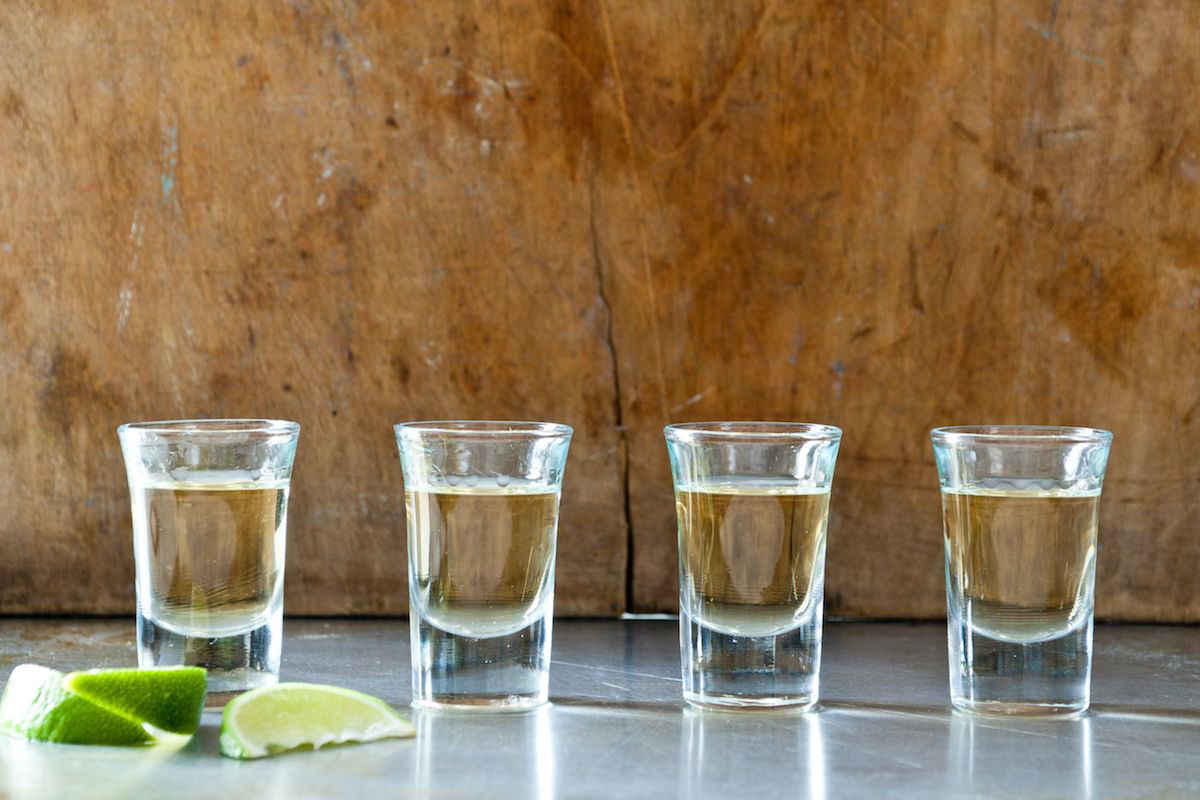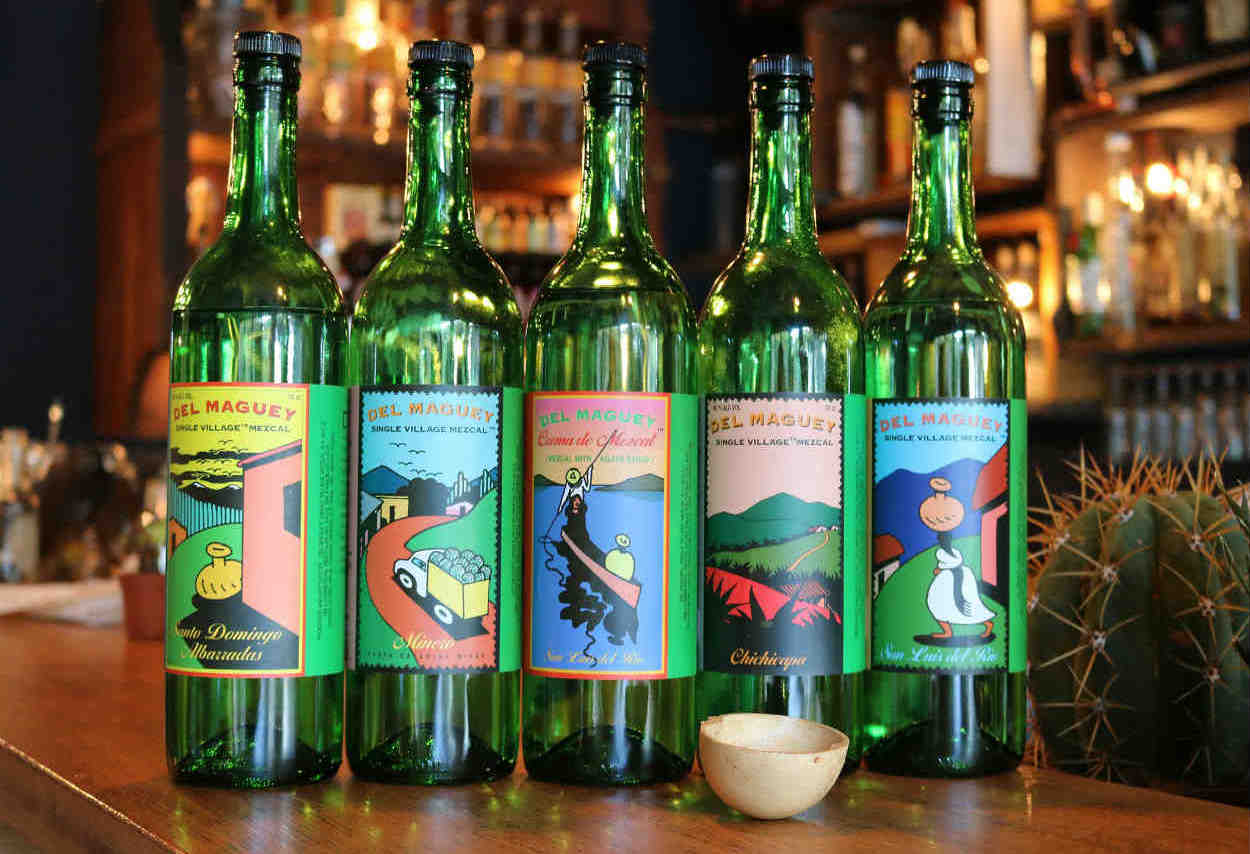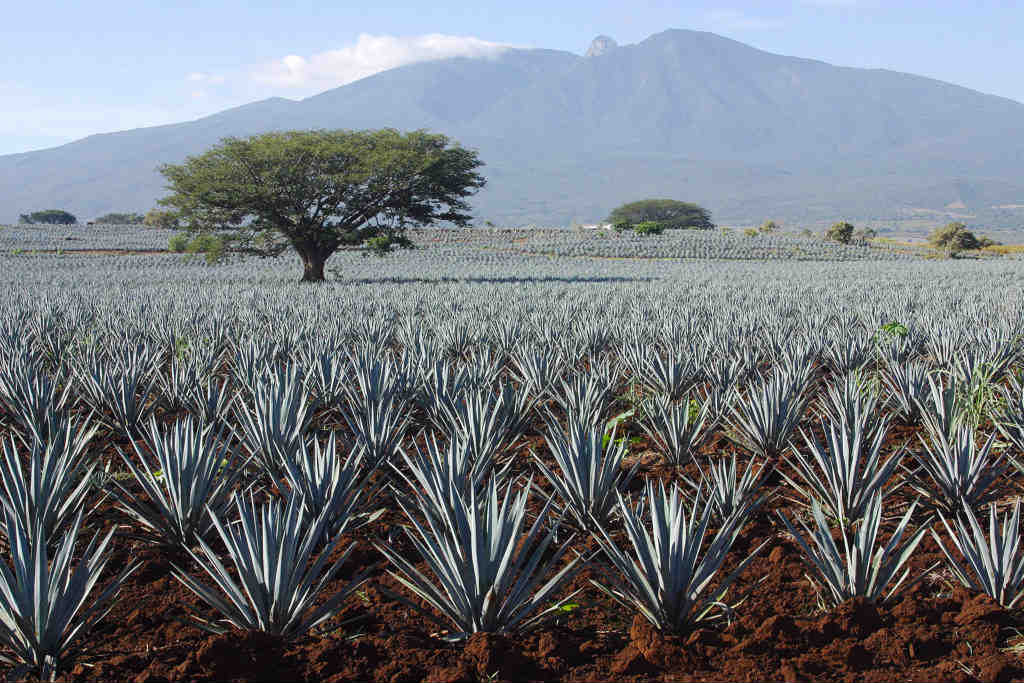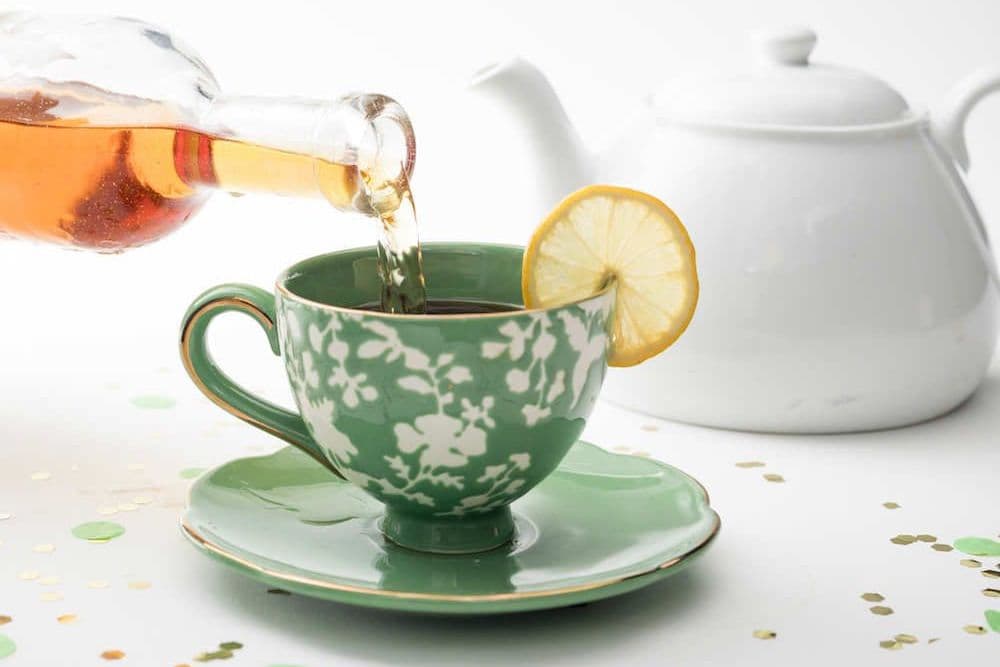Among the major spirit categories, tequila and mezcal are some of the most mythologized and least understood. So in the interest of improving your cocktail party conversation, here’s a quick cheat sheet spelling out the key characteristics and major differences of each.
What Is Tequila?
While it’s common for Americans to perceive tequila as the umbrella category and mezcal as one of its subsets, it’s really the other way around. Tequila is a type of mezcal, albeit one made with blue agave and produced in specified parts of Mexico. There are two categories within tequila: 100% blue agave tequila, which will be labeled as such, and “mixto tequila” which is made with a minimum 51% blue agave.

Getty Images
Tequila Basics
- Tequila is made from the blue agave plant, which is typically grown for eight to 10 years before it’s ready for harvest.
- A “mixto tequila” can be made from at least 51% agave sugars, with the rest typically coming from cane sugar. Mixto tequilas are typically labeled as “tequila,” while those made exclusively with blue agave are labeled “100% agave tequila.”
- According to Mexican law, tequila can only be made in the state of Jalisco or in specific parts of four other Mexican states: Michoacán, Guanajuato, Nayarit and Tamaulipas.
- Agave used for tequila is most often steam-cooked in a large oven called an “autoclave” prior to distillation.
- Tequila is distilled two to three times in a copper still or column still.
What Is Mezcal?
Though it’s sometimes thought of as more niche or specialized than tequila, the category of mezcal includes any spirit distilled from agave (hence, tequila is a mezcal). But unlike tequila, mezcal can be made from a wide sweep of agave plants. Mezcal is commonly identified with the smoky aromas and flavors found in some of its varieties, but the range of agave choices available to the mezcal producer can result in a diverse palette of flavors.
Like tequila, mezcal can be made from either 100% agave, or a less pure mixto consisting of at least 80% agave. However, mixto mezcal is less common than mixto tequila.
Most mezcals sold in the United States are produced using traditional, artisanal, methods, which is reflected in their higher price point. While mezcal can also be made industrially, these inexpensive and mass-produced mezcals are a rarer sight in the States.

Achim Schleuning / Wikimedia Commons
Mezcal Basics
- About 30 (of the 200 total) varieties of agave can be used to make mezcal.
- A “mixto mezcal” is made using at least 80% agave, with the remaining percentage derived from other sugars.
- The type of agave or “maguay” selected to make the mezcal affects its flavor. The most commonly used agave for mezcal production is espadín. Other agave varieties include tobalá, tobaziche, cupreata, and arroqueño.
- According to Mexican law, mezcal can be produced in nine different states, some of which also produce tequila. These states are Oaxaca, Guerrero, Durango, Michoacán, Guanajuato, San Luis Potosí, Tamaulipas, Zacatecas, and Puebla.
- Agave used for mezcal is traditionally cooked in an underground pit surrounded by volcanic rock. Once the fire has been started, agave is added to the pit, covered with earth and cooked for several days. This process results in the smoky, savory quality associated with mezcal.
- Once cooked, the agave is traditionally crushed in a stone pit by a large, wheel-like device called a tahona that is often pulled by a donkey.
- Mezcal is distilled two to three times in pot or clay stills.
Tequila and Mezcal Age Categories
There are five different age categories for both tequila and mezcal.
- Silver tequila or mezcal (also referred to as “blanco,” “plata,” “white,” or “platinum”), is either unaged or aged for less than two months.
- Gold tequila or mezcal (also referred to as “oro” or “joven”) is a category that doesn’t actually refer to age, but additives. These are mixtos with added colors or flavors. However, sometimes “joven” can refer to an unaged mezcal, or a silver tequila that has been blended with a smaller amount of reposado or añejo tequila.
- Reposado tequila or mezcal is aged from two months to under one year.
- Añejo tequila or mezcal is aged for at least one year.
- Extra añejo tequila or mezcal is aged for three years or more.



